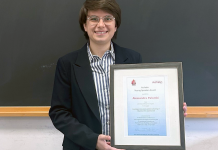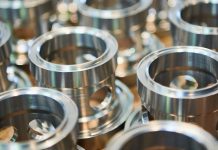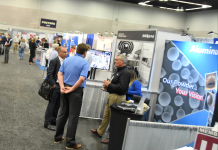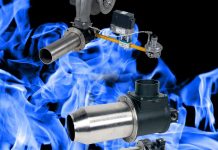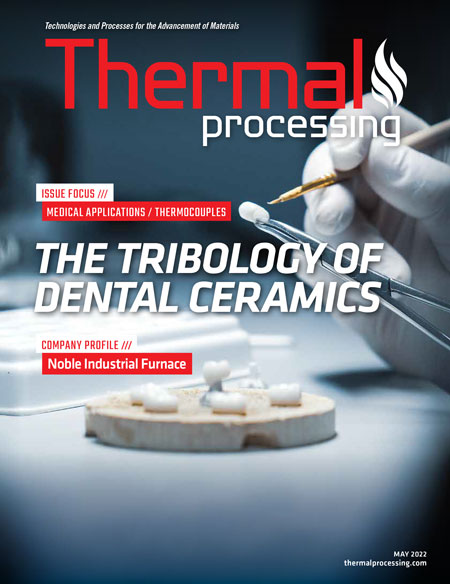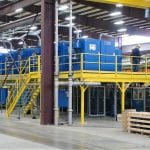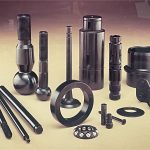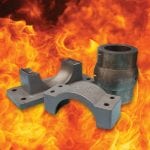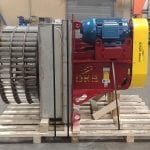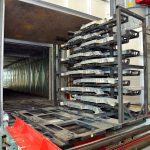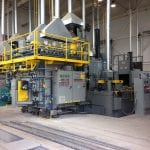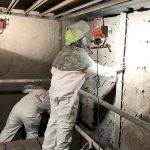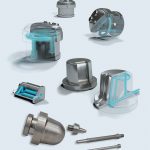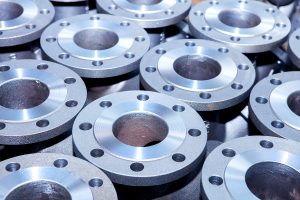In the competitive world of heat treating, it’s no small feat to make it to the half-century mark. In order to do that, a company has to stay innovative and in tune with the latest trends, as well as being there to ensure customers are getting the best quality equipment available.
To that end, Noble Industrial Furnace has shown that ability time and time again since it began in 1972.
“We build state-of-the-art robust gas-fired or electric furnaces in almost any configuration that’s out there,” said Dan Noble, vice president of Noble Industrial Furnace. “One of the things that we’ve always done is we overbuild, because it’s such a demanding industry. We know what works and we know what makes our equipment last. We put our burners closer together; our furnaces have that outer channel iron skeleton; we go beyond code requirements. Bottom line, we overbuild, and we build it with good materials.”
“Right now, in our shop, we have a 40-foot-long car bottom furnace that we’re building; it’s a real monster,” he said. “That’s for the oil industry down in Texas.”
Also in production are two additional gas fired car bottom furnaces, along with high volume concurrent orders of multiple custom configurations of electric box furnaces, according to Noble.
Noble also builds thermal processing equipment used by the aerospace industry including VPA and VPC coatings, precipitation heat treat, bakeout, and heat-tint furnaces; however, aerospace is just one example of many industries that Noble serves.
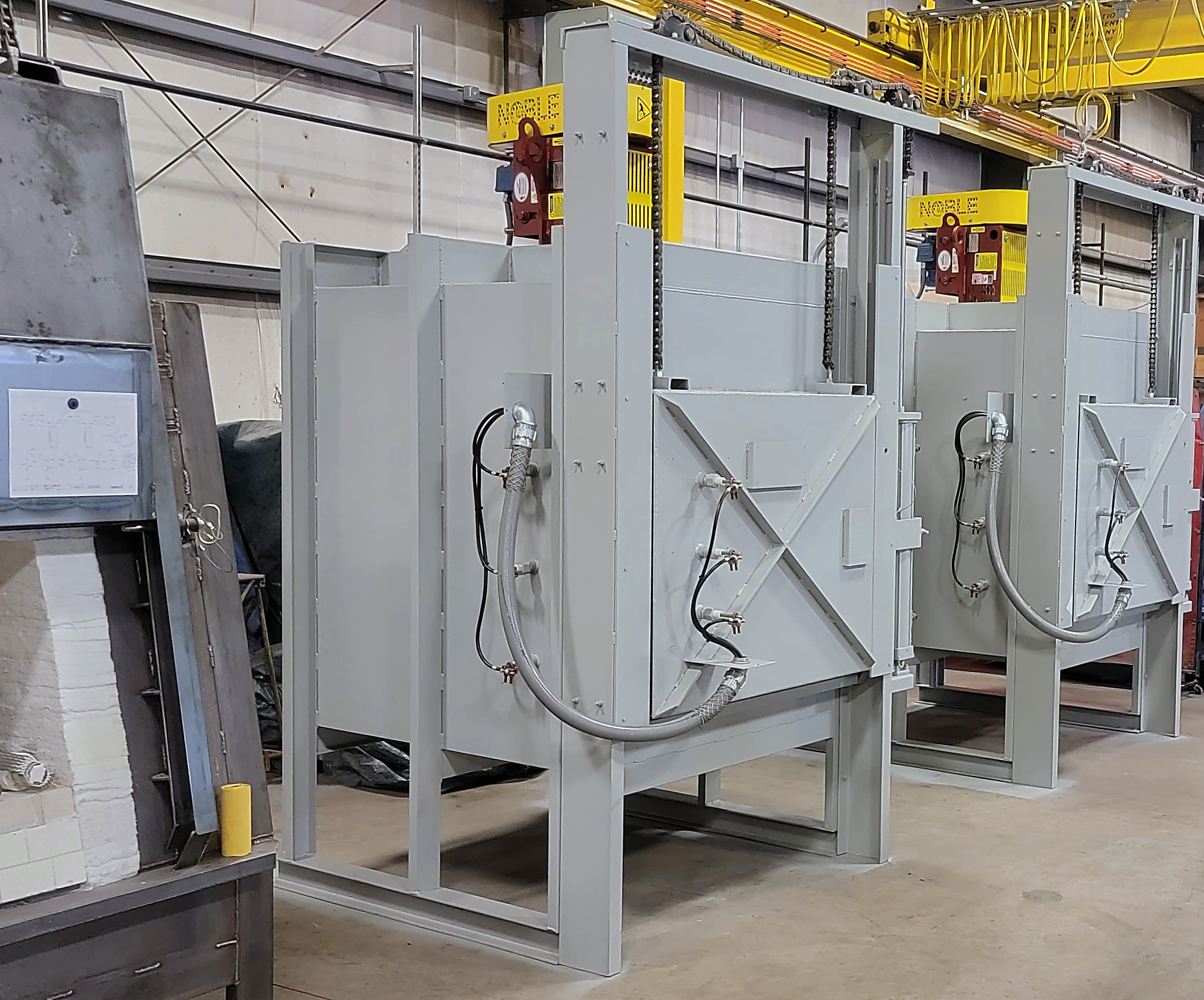
Custom-designed furnaces
Designing and building a furnace is not a cut-and-paste venture. That’s why almost all of the furnaces that come out of Noble’s shop are custom made for each customer, according to Noble.
“We’re always starting from scratch, really,” he said. “Building to our customers’ specifications almost always requires different furnaces. You really have to start with the work area and work your way out from there.”
Although Noble said he’s grateful for a simple customer request, he pointed out that his team is always ready for a challenge.
“One of the things that’s nice is when you get to build a standard furnace — a 2-foot-by-3-foot air furnace — it’s like a breath of fresh air; it’s like, oh, something easy,” he said. “As a manufacturer we always try to get a furnace design going where there can be some standardization, but, in reality, every shop seems to have their own specifics — they need this different temperature, different size, different configuration. We end up building more custom furnaces than the standard. But that’s OK; it works for us.”

Compartmentalizing requests
In order to properly address a customer’s needs, Noble said it’s important to compartmentalize and simplify things as much as possible.
“That’s a specialty of ours, really,” he said. “Everything that comes in — the phone calls, the inquiries — are complicated and challenging. So, the first thing we do is break it down and take it apart piece by piece. It simplifies the process. A lot of times our customers come to us with a really long wish list, and they keep adding to it, and it’s our job to help them whittle that down and balance out what they need from the product vs. financially what they can justify as a capital expenditure.”
A large part of what keeps Noble’s team of experts motivated — in addition to a work challenge — is that, since Noble started as a family business, the company wanted to make sure that family environment is integral to its employees, according to Noble.
“We all have to work, but we all like to go home at night, too,” he said. “We keep it a family environment where we all care about each other. We work with each other.”
And Noble added that family-oriented philosophy extends to Noble’s customers as well.
“We keep that family environment with our customers, too,” he said. “We do work together as a pretty competitive team, but with a family background and a family environment. We have worked with most of our customers for decades and have provided them with multiple new pieces of equipment and service as they expand processes and increase production.”
Customer needs
Having a special relationship with customers also helps when dealing with what those customers may need, according to Noble.
“Every single project you get is for a very specific customer need,” he said. “Our philosophy is not to try to force the customer to pick one of our furnaces that will best match their needs. We start by asking, ‘What are the customer needs?’ And we’re going to build them the best thing that fits with their process, facility, and budget. We design for the future, too, because it’s robust, and it’s going to last. We’re always trying to think of tomorrow and next year.”

Built to last
Not just words as that expertise and reliability can be seen front and center upon entering prominent aerospace, tooling, and heat-treatment facilities located along the East Coast and beyond.
To drive home that point, Noble pointed out that the company has some of the longest running, 24/7 pieces of equipment in the industry.
“That’s a big thing; it means less downtime so it keeps running,” he said.
Rebricking boilers
Noble Industrial Furnace was started by Noble’s father, Raymond Noble, in 1972. About seven years before Raymond Noble began his company, he worked for a company that rebricked boilers. When someone asked him to rebuild one, it provided the perfect opportunity to start his own business. With Noble Furnace being located in “aerospace alley” between Hartford and Boston, more and more customers began trickling in.
“It took a few years, but we build a good product, and so our name got out there and people were always asking for more,” Noble said. “In this industry, it’s word of mouth.”

Reinvestment strategy
To keep up with a changing industry, Noble said the company has recently reinvested resources into the facility, which includes new areas for fabricating tools and the addition of an overhead crane that can move throughout the building. Noble is also investing more in service road crews. Increases in new-build fabrication projects along with heightened demand for their 1-Stop program has required Noble to purchase storage facilities and hire new experienced personnel.
“We’ve put a lot of thought and actually a lot of money into that with tools and getting our crews out on the road,” he said. “At our facility, we’re restructuring offices, adding a new break room, and we have a big war room here where we gather as a team to go over prints and projects.”
Still growing
The industry and Noble have come a long way in 50 years, and many advances have helped take the company’s products to the next level.
Noble expects that expertise to continue as the company moves into another half century of furnace production.
“We’re still growing and improving our product,” he said. “I don’t honestly see the fundamentals of furnace design changing that much. I would like to see our name on the short list in every facility around the country when they’re looking for a new product or looking for service. But I see furnaces, as far as they’re still a box that keeps the heat in and the cold out, as a time tested, solid work horse of the manufacturing industry. Improvements come into play as we incorporate evolutionary materials and components, improving efficiency, longevity, and decreasing maintenance costs.”
And those improvements will be used to continue to help Noble’s customers operate and maintain their equipment, according to Noble.
“It’s not only about fabricating the furnace, but it’s also about predictive maintenance, preventative maintenance, and consumables and spare parts,” he said. “We’re going to help the customers figure that out and maintain that. Along with inventory recommendations and management of critical spare parts, we are also a resource for them as they use that piece of equipment providing training, troubleshooting, and offering our knowledge and experience. We’re not going to just drop it off and expect them to figure it out.”
MORE INFO www.noblefurnace.com




